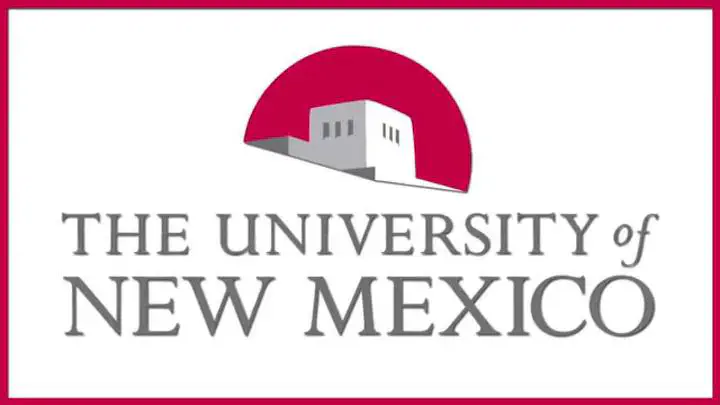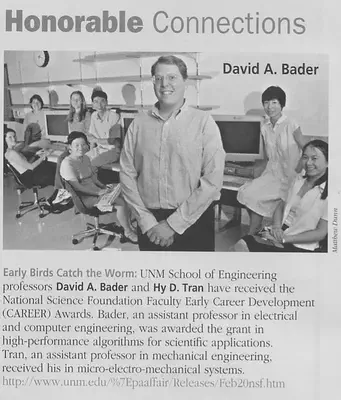UNM Engineering Professors receive NSF CAREER Awards


University of New Mexico School of Engineering professors David A. Bader and Hy D. Tran recently received the National Science Foundation Faculty Early Career Development (CAREER) Awards.
Bader, assistant professor in Electrical and Computer Engineering, has been awarded the grant in High-Performance Algorithms for Scientific Applications. His CAREER research plan will investigate and develop algorithms for high-performance computers that have multiple processors, advanced memory subsystems and state-of-the-art communication networks. He harnesses all of these resources concurrently to solve computional science applications. Science-driven problems in genomics, bioinformatics and computational ecology will provide the focus for this research.
“Many scientific applications require the solution to computationally hard problems,” Bader said. “For instance, a simulation model may require datasets in the order of terabytes that overwhelm the capacity of storage on personal computers and workstations. Other problems are difficult in that they require time-consuming operations whereby a PC may take months, years or even centuries, to solve a problem (e.g., weather prediction) whereas the solution must be obtained in a reasonable amount of time for it to be useful.”
He said a personal computer typically contains a single processor (e.g., an Intel Pentium) and applications written for this machine in general give the processor a single stream of instructions to execute one-by-one. “Imagine now using hundreds, or thousands, of processors together to solve a computational problem,” he said. “We still must give each processor a stream of instructions, but now, we must find clever ways to partition the work among a number of processors.”
Tran, assistant professor in Mechanical Engineering, received his CAREER grant in micro-electro-mechanical systems (MEMS) specifically, investigating alternative means (as opposed to batteries) for providing power to microsensors and other microsystems.
“I am especially interested in scavenging energy from the environment to power microsystems,” Tran said. “If you look at the environment, ambient light can provide energy, as can ambient vibrations and acoustic sound. I will be investigating the use of ambient temperature fluctuations to generate power for microsystems.”
His research has environmental benefits, including reduced use of batteries with possibly hazardous materials, such as Nickel/Cadmium.
Tran said the NSF CAREER grant will also support integration of research into education, and educational outreach to K-12 students. The educational benefits should include greater awareness of engineering and technology in K-12, and eventually, more students choosing science/engineering majors.
The CAREER program is a NSF-wide activity that supports junior faculty within the context of their overall career development. It combines in a single program the support of research and education of the highest quality and in the broadest sense. This premier program emphasizes the importance the Foundation places on the early development of academic careers dedicated to stimulating the discovery process in which the excitement of research is enhanced by inspired teaching and enthusiastic learning.